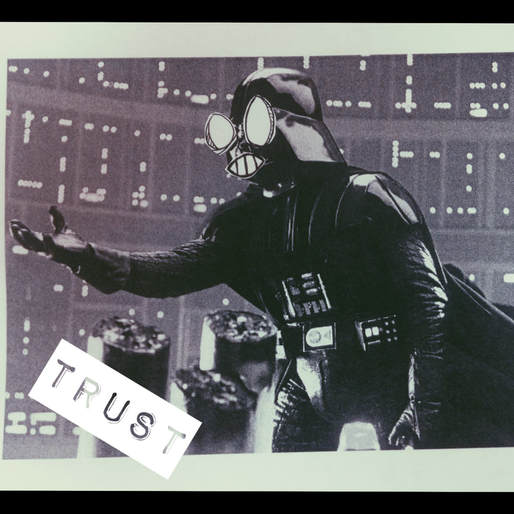 People have an affinity for saying stupid things. When using good as an adjective to describe another human it is important to listen to the qualifier in order to grasp the context of what they are communicating. Listen to what people say to and about others in public, while they may use good in a sentence it is important to understand that there are at least three levels of good. 1. He's a good guy. Let's be clear, this might as well be a diss. People say, "He's a good guy," when they have nothing of substance to say. You can fill in the the preamble, "He sucks at everything else but at least he's a good guy." This level of good is bad. It's bad in a bad way. And by bad we mean it's a negative thing. Please, unless you hate me, don't ever use this statement about me. A good guy is the status quo, they meander through life and don't leave a substantive mark one way or the other. If someone describes you as a good guy, you know they hate you. Find some good dudes and get your crap together. If someone introduces you to a good guy, they are telling you to go meet someone else. 2. He's a good dude. Now we are talking. This is what you say when you have genuine affection for someone and value some aspect of what they bring to humanity. A good dude has their faults but they contribute to society and they are working through what they understand to be their negative attributes. Good dudes are humans. Good dudes make mistakes but they also make life better. If you hear someone say, "He's a good dude," they you are being introduced to someone who is worth knowing. Good dudes are a mess like the rest but they have a genuine interest in trying to be better, they lead by example. 3. He's good people. This is a level of noteworthiness. The is a phrase of praise for another human. When you declare to another human, "He's good people," you are saying that if you get to know this person you are getting to know someone who makes the world a better place. Good people are those who rise above the status quo, they often go out of their way to do the right thing, to help others and have likely done something in your lifetime that made you want to be a better person. Good people are not saints, but they inspire greatness. Good people are those handful of friends that would drop what they are doing to help you in a time of need. Life is full of good guys, good dudes and good people. Knowing who you are and who you are around is important. Being and surrounding yourself with the right people are the types of decisions that can lead your life down a path of success or failure. If bad company corrupts good character, the wrong kind of good can be just as dangerous. Check out our IZ Ventures video on making good hires with Lola
0 Comments
 Are you exemplifying trust or undermining it? Are you exemplifying trust or undermining it? Regardless of the name it is given in an organization - teamwork or unity or something fancy like synergy – issues are par for the course when humans are involved. A normal day becomes a day of trials when upon entering the office there is that feeling in the air – the leader knows, there is a disturbance in the force. When a synergy shift is noted, it’s time to put the detective hat on and determine whether these are temporary disturbances that are normative or if there is a deeper disruption festering within the group. In the course of an investigation of discordance a good sleuth will distinguish between symptoms and source(s). When it comes to deficiencies in teamwork, often inexperienced leaders will address unity as its own source when in reality it is a symptom. Here's a thought - teamwork is not fixed by teamwork. To put it another way, talking about unity, training on cooperation or attempting to force synergy into the system often will not cure an issue as all of these efforts are chasing symptoms rather than addressing source. Teamwork is a product, it develops from other sources within your team. Conversely, a lack of teamwork is a symptom, it manifests to expose sources of malignancy within your organization. At its foundation, teamwork is a product of trust – the “T” in Team is for Trust. Trust Springs From The Head Of The Fountain When trust is built into the fabric of a team, teamwork will thrive. Without trust, teamwork will be cyclical at best and will not be able to establish roots within the organization. In the process of building a team, trust has to be a core value from the top down. A few questions that will help reveal whether there is a foundational trust issue include: 1) Does leadership trust each other? 2) Is the leadership team setting an example of trust? Leaders who believe in the vision, who respect their co-workers and promote the beauty of both will organically transfer a level of trust throughout the organization. Leaders who have not bought into the vision and/or have reservations about the trustworthiness of their coworkers will emit a level of distrust that will hinder the development of unity in the organization. Trust Starts With Trustworthy People Does your hiring process seek and add trustworthy people to the organization? Employees are watching who leadership hires, as who and how a company hires reinforces or contradicts what leadership has declared as it's values. Is there consistency in how leadership deals with core issues that test the building of trust within the team? The working measure of trust in the workplace is, “Can I trust you to do what you say?” When a team member commits to performing a task, regardless of how simple or complex, can the other members of the team trust that their teammate will do their best to follow through on their commitments? Trust Builds Momentum Through Consistency People that may not have the strongest interpersonal relationships can still work with each other, if they have trust. When there is a disturbance in the force, when leadership is asking why teamwork is scant, the investigation trail should be aimed at sources of trust/mistrust within the organization. Low teamwork does not mean throw more teamwork at the void. The question should delve into sources that are undermining trust. Do team members trust each other? Does management trust it’s employees? Trust Flows Or Sputters With Conflict If teamwork starts with trust, trust survives or dies with truth. Truth fleshes itself in an organization by having a clear vision and bringing people who are invested in seeing that vision through. Truth can be a source of conflict. When conflict is brought about by a tangling among team members over truth, this interaction can be a constructive encounter and must be managed properly to net a positive result (read more on this in our article Embrace Conflict). A commitment to truth, the development of trust and the momentum of teamwork are all ingredients that must be intentionally maintained over the life of a team. Every organization desires unity, synergy will only result where teamwork is demonstrated, trust is protected and the truth is that teamwork has to be demonstrated. Are you an example for your team as to what teamwork looks like? Do your words and your actions establish the parameters for trust within your organization? The next time you have concerns or issues with teamwork, take a look at where trust is being built and where it is being undermined in your organization. Build trust by being creating clarity around truth in your organization, consistently protecting those values and developing accountability within the team from the top down and the bottom up. The first place to look when seeking to build trust, regardless of your position, is to ask whether you are exemplifying or undermining trust in the organization. |
AuthorThoughts on personal and professional development. Jon Isaacson, The Intentional Restorer, is a contractor, author, and host of The DYOJO Podcast. The goal of The DYOJO is to help growth-minded restoration professionals shorten their DANG learning curve for personal and professional development. You can watch The DYOJO Podcast on YouTube on Thursdays or listen on your favorite podcast platform.
Archives
March 2023
Categories
All
<script type="text/javascript" src="//downloads.mailchimp.com/js/signup-forms/popup/unique-methods/embed.js" data-dojo-config="usePlainJson: true, isDebug: false"></script><script type="text/javascript">window.dojoRequire(["mojo/signup-forms/Loader"], function(L) { L.start({"baseUrl":"mc.us5.list-manage.com","uuid":"b9016446bd3c6a9f0bd835d4e","lid":"83282ffb9e","uniqueMethods":true}) })</script>
|
Jon Isaacson |
Connect. Collaborate. Conquer.
© COPYRIGHT 2015. ALL RIGHTS RESERVED.
|



 RSS Feed
RSS Feed